
THREAD: russia rampages missile barrage targets...
LifeLine™ Media threads use our sophisticated algorithms to construct a thread around any topic you want, providing you with a detailed timeline, analysis, and related articles.

EUROPEAN Leaders PRESSURE Trump to Stand Firm on Ukraine
— French President Emmanuel Macron and U.K. Prime Minister Keir Starmer are in Washington to urge President Trump not to abandon Ukraine against Russia. Macron criticizes Trump’s recent actions that seem to align with Russia, while Starmer aims for a more diplomatic approach, hoping to connect Europe and the U.S. Both leaders stress Ukraine’s sovereignty in peace talks.
Macron warns Trump against appearing “weak in the face of President Putin,” saying it’s not in America’s interest. He’s set for White House talks on Monday, marking three years since Russia’s full-scale invasion of Ukraine. Starmer will visit Thursday, highlighting Europe’s unified support for Kyiv amid ongoing tensions with Moscow.
These diplomatic efforts follow a crisis meeting led by Macron with European leaders in Paris last week to plan their next steps regarding the war in Ukraine. Meanwhile, Trump criticizes both Macron and Starmer for allegedly failing over the past three years to end the conflict, showing tension between European leaders and the U.S. over handling Russian aggression.


US President’s SHOCKING BLAST at Zelenskiy Signals Bold Ukraine Shake-UP
— The US President took aim at Ukrainian leader Volodymyr Zelenskiy, saying, “Everything out of his mouth causes problems.” This is a big change in how America deals with Ukraine. The comments come as the war with Russia drags on.
Experts say this harsh criticism could impact future military and money support for Ukraine. The President’s frustration with Zelenskiy’s choices and words suggests talks with Russia and Western allies are getting harder.
The remarks have stirred debate in the US and overseas. Some believe the President is finally being honest, while others fear it could hurt ties between the US and Ukraine.
This move hints that American policy may be shifting. The White House now seems to want clearer plans and better communication from its partners going forward.
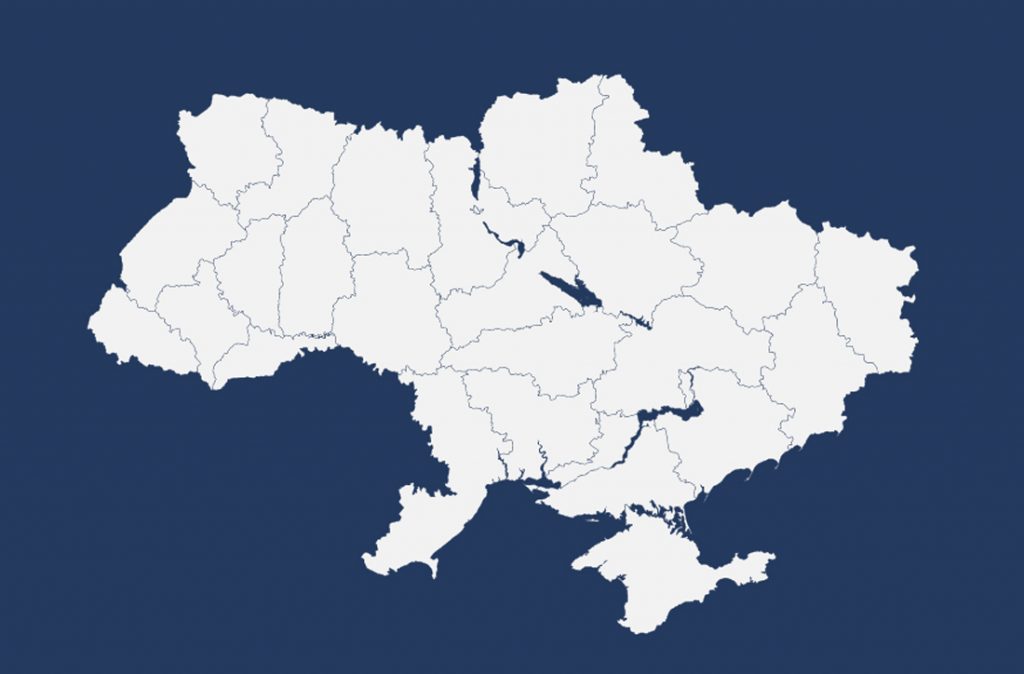
RUSSIAN DRONE Strike Shocks Ukraine: Innocent Lives Lost After Peace Talks Collapse
— A Russian drone strike killed nine innocent people and wounded seven more in Ukraine’s Sumy region on Saturday. The attack hit a bus carrying evacuees from Bilopillia, just six miles from the Russian border.
Ukrainian President Zelenskyy called it a “deliberate killing of civilians.” He blamed Russia for refusing to agree to a ceasefire during recent peace talks. British officials also condemned the strike and urged Russia to stop its aggression.
Local leaders declared a period of mourning until Monday, calling it “Black Saturday.” The injured were taken to the hospital in Sumy as families mourn another painful loss.
This tragedy shows once again how dangerous failed diplomacy can be. Many now wonder if true peace is possible when one side refuses to stop the violence.

US-UKRAINE MINERALS Deal Ignites Hope for Trump’S Strong Support
— The United States and Ukraine have signed a new deal giving America access to Ukraine’s key minerals. Ukrainian leaders say this version is better for them than past drafts, which would have made Ukraine less of an equal partner. The agreement still needs approval from Ukraine’s parliament.
The deal also sets up a fund to help rebuild Ukraine. Kyiv hopes this will secure more U.S. military aid in the future. A similar agreement almost happened before but was stopped during tense talks with President Trump, Vice President JD Vance, and President Zelenskyy.
Secretary of State Marco Rubio called this week “very critical” for ending the war in Ukraine. Treasury Secretary Scott Bessent said the deal sends Russia a clear message: The Trump administration stands by a free and independent Ukraine.
Ukraine sees this as an important move to keep America as its top ally against Russia’s invasion. Now all eyes are on whether Kyiv’s lawmakers will approve the plan.

PUTIN’S Easter Ceasefire Shattered: Deadly Betrayal Leaves Ukraine in Mourning
— Three people were killed in Ukraine’s Kherson region during what was supposed to be a 30-hour Easter ceasefire announced by Russian President Vladimir Putin. Ukrainian leaders say Russian forces kept attacking, with President Zelenskyy reporting over 2,900 violations and hundreds of drone strikes during the truce.
Russia denies breaking the agreement. The Russian Defense Ministry claims its troops “strictly observed the ceasefire” and did not push forward. Instead, Moscow accuses Ukraine of nearly 5,000 violations.
Putin says fighting only started again after the truce ended. Meanwhile, Zelenskyy is calling for a longer peace or at least an end to attacks on civilians — something Russia says will only happen if Western countries stop sending weapons to Ukraine.
The back-and-forth blame shows just how little trust remains between Moscow and Kyiv. Both sides point fingers as innocent lives are lost — even on sacred holidays.

PUTIN’S Fake Ceasefire Sparks Outrage As Attacks Rock Ukraine
— Russian President Vladimir Putin announced a 30-hour Easter ceasefire, but deadly attacks still hit the Kherson region. Ukrainian officials say three people were killed and three more hurt during what was supposed to be a truce. The head of Kherson’s administration, Oleksandr Prokudin, shared these numbers with the public.
Ukrainian President Volodymyr Zelenskyy accused Russia of breaking the ceasefire over 2,900 times. He said Russian forces kept up shelling and drone strikes along the front lines. Zelenskyy told his people that “actions always speak louder than words” and promised Ukraine would only stay silent if Russia did too.
Russia’s Defense Ministry pushed back, blaming Ukraine for 4,900 violations instead. They claimed Moscow’s troops “strictly observed the ceasefire.” But as soon as midnight hit and the truce ended, fighting picked right back up across both sides.
Putin says he’ll only agree to a real ceasefire if Western countries stop sending weapons to Kyiv and if Ukraine stops calling up new soldiers — terms Ukraine flatly rejects. With both sides pointing fingers and refusing to budge, this war looks far from over.

PUTIN’S Fake Ceasefire: Ukraine Shattered by Deadly Attacks During “Truce”
— Russian President Vladimir Putin promised a 30-hour EASTER ceasefire. But while he claimed to stop fighting, Ukrainian officials say Russian attacks killed three people in Kherson and injured more. Shelling continued even as Moscow said it was honoring the truce.
Ukrainian President Volodymyr Zelenskyy accused Russia of breaking the ceasefire over 2,900 times. He said there were hundreds of drone strikes and nearly 100 assaults along the front lines during those hours. Zelenskyy made it clear — Ukraine will defend itself if attacked.
Russia’s Defense Ministry pushed back, blaming Ukraine for almost 5,000 violations instead. They insisted Russian troops stayed put and did not attack first. After the truce ended, Putin said fighting resumed and criticized Kyiv for asking Western nations for help instead of peace talks.
Putin now demands that Western countries stop sending weapons to Ukraine before any real ceasefire can happen — something Ukraine refuses to accept. As both sides trade blame over failed truces, peace looks farther away than ever in this brutal war.
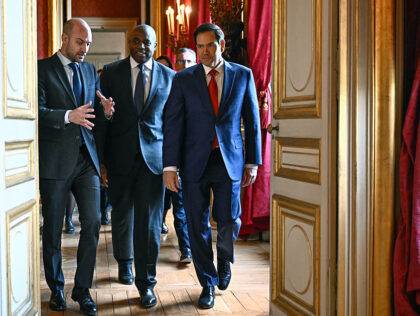
US PEACE TALKS Warning: Rubio’s Bold Move Could Change Ukraine War
— Secretary of State Marco Rubio warned Friday that the U.S. might walk away from Ukraine-Russia peace talks if both sides don’t show real progress soon. Speaking before leaving France, Rubio said Moscow and Kyiv aren’t taking talks seriously. “We’re not going to be flying all over the world and do meeting after meeting if no progress is being made,” he told reporters.
Rubio made it clear that America won’t keep joining pointless meetings just for show. He said the U.S. wants to help end the war in a fair and lasting way, but only if either side truly wants peace.
If Russia or Ukraine doesn’t show they’re ready to compromise soon, Rubio hinted President Trump could decide it’s time for America to step back from negotiations. Still, he left open the chance for future talks if things change.
Many conservatives agree with Rubio’s tough stance, saying America should not waste time or resources on endless discussions that go nowhere while our own country faces serious problems at home.

BRITAIN’S Bold Military Boost to Ukraine: A Game-Changer?
— Britain announced a major military support package for Ukraine, pledging over $580 million alongside Norway. This aid includes drones, radar systems, and anti-tank mines. The goal is to strengthen Ukraine’s defenses against the ongoing Russian invasion.
Ukrainian Defense Minister Rustem Umerov stressed the need for advanced air defense systems like Patriot missiles. He urged Western allies to supply these systems to shield Ukrainian cities from Russian ballistic threats, noting that such equipment is available among Ukraine’s partners.
Russia holds a strategic edge as the conflict enters its fourth year. Ukrainian officials expect a new Russian offensive aiming to boost their position in ceasefire talks. The situation remains tense with both sides gearing up for possible escalations.
The 27th meeting of the Ukraine Defense Contact Group was held in Brussels, led by Britain and Germany. U.S. Defense Secretary Pete Hegseth was notably absent but joined via video after returning from Panama earlier this week.
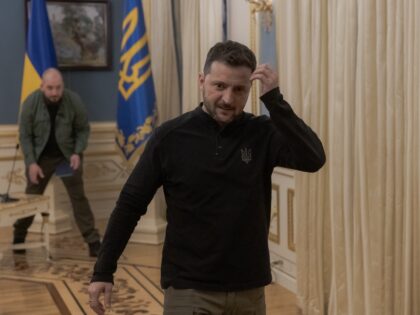
UK’S BOLD Defense Strategy: REASSURANCE Force for Ukraine Unveiled
— The UK’s Ministry of Defense is crafting a “reassurance force” to bolster Ukraine against Russian aggression. Admiral Antony Radakin stressed enhancing the Ukrainian army’s strength to deter future threats. Talks this weekend aim to set the stage for further discussions in Brussels with defense ministers and the Ukraine Defense Contact Group on Friday.
Britain supports a European-led peacekeeping force in Ukraine, relying on U.S. backing to counter potential Russian reprisals effectively. The proposed force could include 10,000 to 30,000 troops — a significant pledge from nations rebuilding post-Cold War militaries. Former President Trump has consistently pushed for a ceasefire and opposed Ukraine joining NATO, pausing military aid during his tenure.
Meanwhile, the death toll from a Russian missile strike in Kryvyi Rih has risen to 18, including nine children, according to regional Governor Serhii Lysak. The attack injured 72 people — half remain hospitalized with serious injuries affecting 17 critically. Oleksandr Vilkul of the city’s defense council condemned the attack: “There can never be forgiveness for this.”
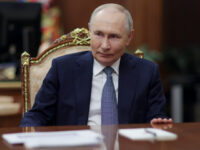
PUTIN’S Bold Peace Plan: Brics And North Korea In Ukraine Talks?
— Russian President Vladimir PUTIN has proposed a fresh approach to peace talks in Ukraine, suggesting the expanded BRICS group play a role. This collective now includes Egypt, Iran, UAE, and Ethiopia. In 2024, thirteen more nations joined as "partner countries.
PUTIN’s comments left it unclear if all new members and partners would join the talks. Including North Korea could complicate things due to its military support for Russia against Ukraine. South Korea reported that North Korea sent troops and weapons to help Russia’s war efforts.
Amid these events, North Korean leader Kim Jong-un plans another visit to Russia this year. Russian Deputy Foreign Minister Andrew Rudenko confirmed the visit is being arranged but didn’t provide a date. Kim visited Russia in 2019 and 2023, strengthening ties between the two countries.
During his Murmansk visit, PUTIN suggested replacing Ukrainian President Zelensky with an interim international administration under UN oversight for peace accords and elections. He proposed including the U.S., European countries, and Russia’s allies in this temporary governance structure for Ukraine.

US RESUMES SECURITY Support to Ukraine: A Bold Move for Peace
— The United States will restart military aid and intelligence sharing with Ukraine. This decision comes after Kyiv showed it is ready to accept a U.S.-proposed 30-day ceasefire with Russia.
This action is part of a larger diplomatic plan to stabilize the region amid ongoing tensions. US officials emphasize how crucial this aid is for Ukraine’s defense and regional stability.
Both countries are in talks to reduce conflict and find lasting peace solutions. Restarting support marks a big step in US-Ukraine relations during these tough times.
— Ukraine and US officials initiate talks to end Moscow’s war The discussions come shortly after Russian air defenses intercepted over 300 Ukrainian drones in a single day
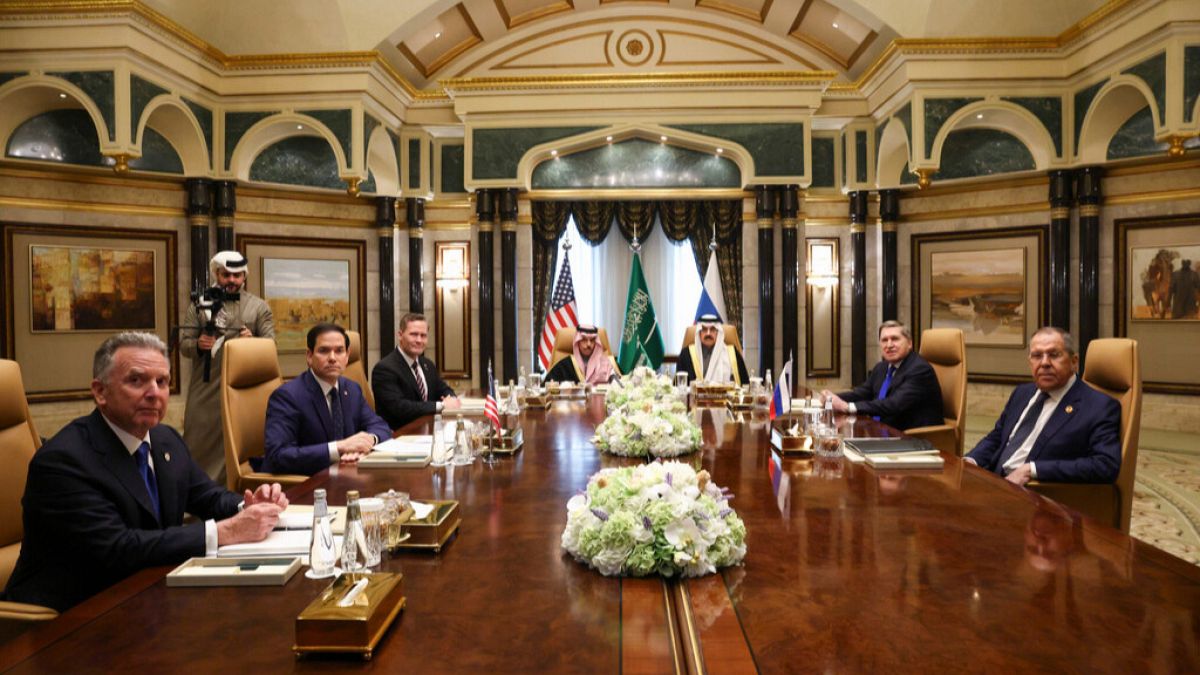
SAUDI TALKS: Ukraine’s Desperate Bid for Peace in High-Stakes Meeting
— High-stakes talks between Ukraine and the United States kicked off in Jeddah, Saudi Arabia, aiming to end Kyiv’s ongoing conflict with Moscow. This meeting follows a massive drone attack where Russian defenses shot down 337 Ukrainian drones over ten regions in Russia, resulting in two deaths and 18 injuries.
U.S. Secretary of State Marco Rubio met with senior Ukrainian officials at a luxury hotel, while Saudi Arabia’s foreign minister was present. Despite the tense atmosphere, there was no immediate comment from either side about the drone attack. The talks signal a renewed diplomatic effort after tensions rose during President Zelenskyy’s recent visit to the White House.
Ukrainian officials plan to propose a ceasefire covering the Black Sea for safer shipping routes and an end to long-range missile strikes affecting civilians. They also seek prisoner releases as part of their proposal.
Russia remains firm on its conditions for peace, demanding Ukraine abandon its NATO aspirations and recognize Russian-occupied regions as part of Russia before stopping hostilities. No concessions have been publicly offered by Moscow at this time.
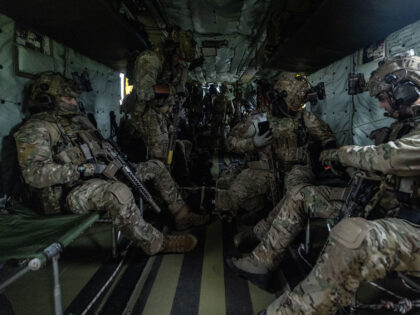
BRITAIN and EUROPE Rally Defense: A Bold Response to Ukraine WAR
— Britain and Europe are ramping up their defense in response to the Ukraine War. Secretary of State for Defence John Healey confirmed this commitment to U.S. Secretary of Defense Pete Hegseth. Healey praised Trump’s NATO policy, emphasizing Europe’s need for self-reliance in defense matters.
NATO’s requirement of spending two percent of GDP on defense has been a standard for years, but many European countries have fallen short. With current threats, discussions are underway to raise this minimum to three or even five percent, similar to Cold War levels. UK Health Minister Stephen Kinnock backed these efforts, saying Europe must be ready to defend its territory.
Kinnock acknowledged America’s push for NATO members to boost their defense capabilities and called it “absolutely right.” He highlighted the need for military readiness and meeting challenges directly. However, he criticized past Conservative governments while overlooking Labour’s own failures during their rule from 1997 to 2010.
During Labour’s last time in power, national defense spending dropped despite Tony Blair’s involvement in Iraq. The British military faced severe equipment shortages due to poor funding then. An inquiry later exposed critical gaps like a lack of helicopters and armored vehicles that compromised troop safety during overseas missions.
EUROPEAN UNION in Turmoil: Defense Woes Under Trump
— European Union leaders rushed to Brussels for emergency talks, worried about U.S. support under President Donald TRUMP. They focused on boosting European security and protecting Ukraine. Friedrich Merz, Germany’s likely next chancellor, and summit chairman Antonio Costa discussed quickly strengthening Europe’s defenses.
Merz pushed for easing Germany’s debt rules to boost defense spending. Meanwhile, French President Emmanuel Macron proposed using France’s nuclear capabilities to protect Europe from Russian threats. This is a big change since Trump began disrupting U.S.-Europe security ties.
Danish Prime Minister Mette Frederiksen stressed the need for more defense spending across Europe, a big shift from past budget priorities where military funding was low. Macron promised that EU countries would increase military budgets and work together on advanced weapon production in Europe.
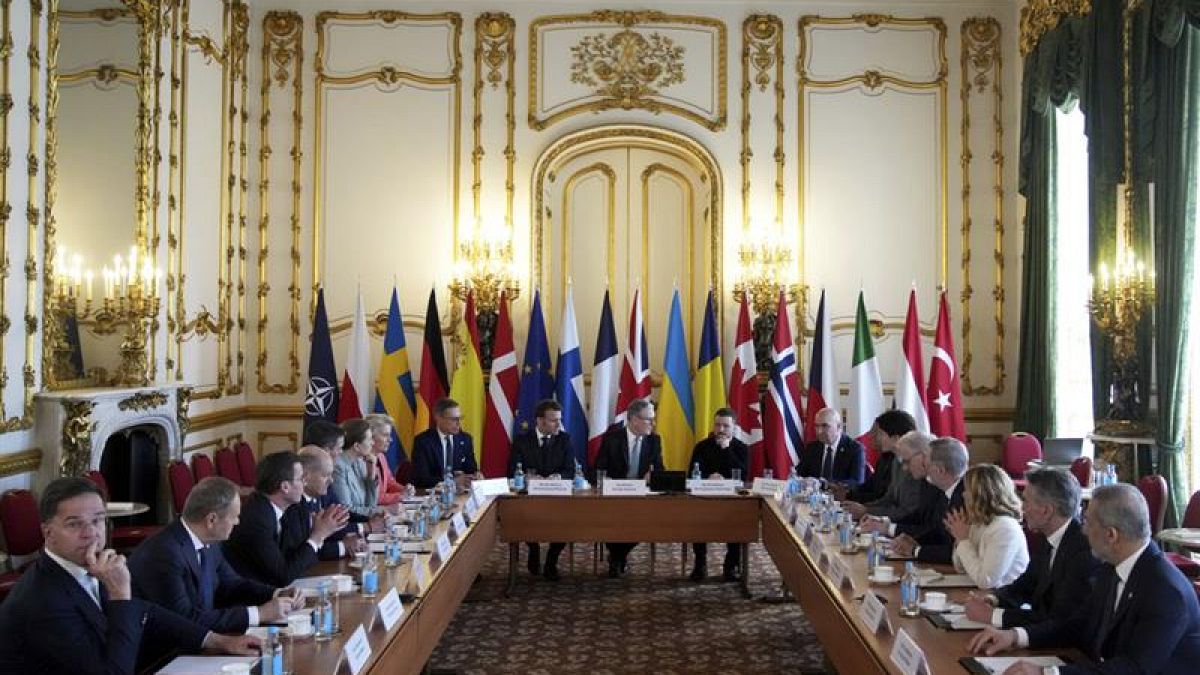
EUROPE’S Bold Move: Seizing Control in Ukraine Talks
— European leaders are eager to steer Ukraine-Russia negotiations. At a London summit, British Prime Minister Keir Starmer stressed the importance of this moment for the West. Their aim is to unify Europe’s stance as Kyiv-Washington relations worsen.
Tensions rose after Ukrainian President Zelensky met with former U.S. President Donald Trump, causing concern across Europe. The meeting reportedly alarmed European leaders who fear a change in U.S. policy could disrupt ongoing efforts in the region.
Europe wants to present a united strategy that prioritizes regional stability and security over outside influences from across the Atlantic. This move shows Europe’s intent to assert its influence and leadership in resolving the conflict effectively and independently.

— Zelensky: No US Security Guarantees Finalized in Minerals Deal Ukrainian President Volodymyr Zelensky has stated that discussions on US security guarantees for Ukraine are still ongoing, despite an initial agreement on mineral resources between Washington and Kyiv

EUROPEAN Leaders’ BOLD Move: Troops to Secure Ukraine’s Future?
— A group of European countries is quietly planning to send troops to Ukraine to enforce a future peace settlement with Russia. Britain and France lead this effort, though details are scarce. The initiative aims to ensure Ukraine’s security, especially since NATO membership for Ukraine is currently off the table.
British Prime Minister Keir Starmer acknowledged the need for security guarantees for Ukraine if peace is achieved. European nations have discussed potential troop deployment for about a year, with urgency rising amid concerns over U.S. President Donald Trump’s possible negotiations with Putin.
In December, before Trump took office, European leaders met with Ukrainian President Volodymyr Zelenskyy in Brussels to discuss the plan further. The meeting included representatives from Britain, Denmark, France, Germany, Italy, the Netherlands, Poland, and top EU officials.
French President Emmanuel Macron initially promoted this idea in early 2024 but faced criticism from Germany and Poland when he did not rule out deploying troops on Ukrainian soil. The role of the United States in this plan remains uncertain as discussions continue among European leaders.

TRUMP’S Bold Move: Push for Ukraine Peace Talks After Putin Call
— Former President Donald Trump plans to start talks to end the Ukraine war. This follows a recent call with Russian President Vladimir Putin. Trump emphasized the need for dialogue and cooperation, suggesting talks could begin “immediately.”
This announcement comes as tensions rise in Eastern Europe, involving NATO and European military actions. Trump’s diplomatic approach contrasts with the current administration’s stance on the conflict, possibly signaling a new way to handle international disputes.
Successful negotiations could ease hostilities and create a peace plan, impacting U.S., Russia, and Ukraine relations. Trump’s experience may be key in brokering peace for humanitarian and geopolitical reasons.
The U.S. government has not yet responded to Trump’s proposal, leaving questions about future foreign policy under the Biden administration. The situation remains fluid as developments unfold in this breaking news story.

BRITISH PM Storms NATO Summit With Bold Ukraine Support
— Newly elected British Prime Minister Keir Starmer made a strong debut at the NATO summit in Washington. He met with Ukrainian President Volodymyr Zelenskyy, reaffirming Britain’s unwavering support for Ukraine against Russia’s invasion. Starmer emphasized that his Labour government would ensure NATO’s unified backing for Kyiv.
Starmer aimed to send a clear message to Russian President Vladimir Putin about NATO’s strength and unity. He stated that NATO is now bigger and more united than ever, fully aware of the threat posed by Russian aggression.
In addition to meeting Zelenskyy, Starmer will have a one-on-one discussion with President Joe Biden to reaffirm the “special relationship” between the U.S. and Britain. Their extended handshake at the summit arrival ceremony highlighted this enduring partnership.
Starmer’s visit follows his landslide victory on July 4, signaling a new chapter for Britain after years of political turmoil over Brexit. His message to the world is clear: “We’re back.”

NATO SUMMIT In DC: Biden’s RE-Election Doubts Shake Ukraine Support
— World leaders are heading to Washington, D.C., this week for a historic NATO summit as uncertainty rises over continued U.S. support for Ukraine. The summit marks the 75th anniversary of the alliance’s founding and comes amid skepticism about President Biden’s re-election chances and their impact on Ukraine’s war with Russia.
Key issues on the agenda include Ukraine’s success in its war with Russia, its future within NATO, and how the alliance plans to bolster collective defense. The U.S. has been a major supporter of Ukraine, providing significant aid, sparking debate over whether this level of support can continue under a different presidency.
Former President Donald Trump has not clarified what U.S. involvement with NATO would look like if he wins a second term, leaving questions about future American support for the alliance and Ukraine unanswered. Experts believe Trump is unlikely to pull out of NATO altogether but note that the alliance is taking steps to safeguard its support for Ukraine should Washington reduce its involvement.
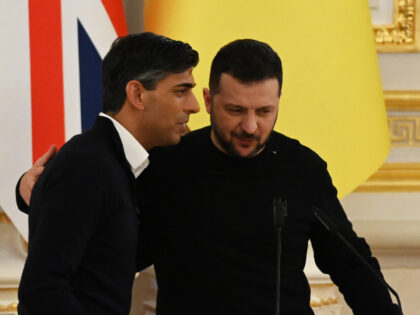
UK’S RECORD Military Aid to UKRAINE: A Bold Stand Against Russian Aggression
— Britain has unveiled its largest military aid package for Ukraine, totaling £500 million. This significant boost raises the UK’s total support to £3 billion for the current financial year. The comprehensive package includes 60 boats, 400 vehicles, over 1,600 missiles, and nearly four million rounds of ammunition.
Prime Minister Rishi Sunak stressed the critical role of supporting Ukraine in Europe’s security landscape. “Defending Ukraine against Russia’s brutal ambitions is crucial not just for their sovereignty but also for the safety of all European nations,” Sunak remarked before his discussions with European leaders and NATO’s chief. He cautioned that a victory for Putin could pose threats to NATO territories as well.
Defence Secretary Grant Shapps emphasized how this unprecedented aid would bolster Ukraine’s defense capabilities against Russian advances. “This record package will equip President Zelenskiy and his courageous nation with essential resources to repel Putin and bring back peace and stability to Europe,” stated Shapps, reaffirming Britain’s dedication to its NATO allies and European security overall.
Shapps further underscored Britain’s unwavering commitment to support its allies by enhancing Ukraine’s military strength which is vital in maintaining regional stability and deterring future aggression from Russia.
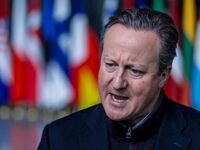
ZELENSKY’S Warning: Support Ukraine or Face Russian Dominance
— Ukrainian President Volodymyr Zelensky has delivered a clear message to the U.S. Congress: without further military aid, Ukraine might lose to Russia. In discussions with House Speaker Mike Johnson, Zelensky will argue against any hesitation in providing the funds needed to fight Moscow’s forces. This plea comes despite Ukraine already receiving over $113 billion in aid from Kyiv.
Zelensky is asking for billions more, but some House Republicans are hesitant. He warns that without additional support, Ukraine’s fight becomes “difficult.” The delay in Congress not only puts Ukrainian strength at risk but also challenges worldwide efforts to counter Russian hostility.
On the 120th anniversary of the Entente Cordiale alliance, leaders from Britain and France joined Zelensky’s call for support. Lord Cameron and Stéphane Séjourné emphasized that meeting Ukraine’s requests is crucial for maintaining global security and preventing Russia from gaining further ground. Their agreement shows how vital U.S. decisions are for international peace and stability.
By backing Ukraine, Congress can send a strong message against aggression and protect democratic values worldwide. The choice is stark: provide the necessary aid or risk enabling a Russian victory that could destabilize global order and undermine efforts to promote freedom and democracy across borders.
UKRAINE’S Downfall: The Shocking Inside Story of the Most Devastating Ukrainian Defeat in a Year
— SLOVIANSK, Ukraine — Ukrainian soldiers found themselves in an unrelenting battle, defending the same industrial block for months with no relief. In Avdiivka, troops had been stationed for nearly two years of the war without any sign of replacements.
As ammunition dwindled and Russian airstrikes intensified, even fortified positions were not safe from advanced “glide bombs”.
The Russian forces employed a strategic onslaught. They first sent lightly armed soldiers to exhaust Ukraine’s ammunition reserves before deploying their well-trained troops. Special forces and saboteurs staged ambushes from tunnels, adding to the chaos. During this turmoil, a battalion commander mysteriously vanished according to law enforcement documents seen by The Associated Press.
In less than a week, Ukraine lost Avdiivka — a city that had been defended long before Russia’s full-scale invasion began. Outnumbered and nearly surrounded, they chose withdrawal over facing another deadly siege like Mariupol where thousands of troops were either captured or killed. Ten Ukrainian soldiers interviewed by The Associated Press painted a grim picture of how dwindling supplies, overwhelming Russian force numbers and military mismanagement led to this catastrophic defeat.
Viktor Biliak is an infantryman with the 110th Brigade who has been stationed since March 2022 said that
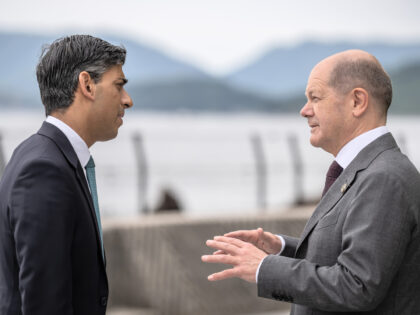
UK and France’s HIDDEN Soldiers in Ukraine: Germany ACCIDENTALLY Spills the Beans
— In a surprising turn of events, German Chancellor Olaf Scholz unintentionally disclosed that both the UK and France have troops stationed in Ukraine. This revelation came about as he defended his decision not to provide Ukraine with Taurus cruise missiles. According to Scholz, these troops are supervising the deployment of their nations’ long-range missiles on Ukrainian soil. His comments hint at a fear of escalating tensions with Russia.
Following Scholz’s unexpected revelation, a leaked audio recording surfaced featuring top-ranking German military officials confirming the active involvement of British soldiers in Ukraine. The recording suggests that British forces are assisting Ukrainians in targeting and firing UK-provided missiles at specific Russian targets. While the German Defence Ministry has verified the authenticity of this recording, it has left some questions unanswered regarding potential editing prior to its release by Russia.
Despite not disputing the legitimacy of this leaked audio, Berlin has tried to downplay it as Russian “disinformation”. Miguel Berger, Germany’s ambassador to Britain, described it as “a Russian hybrid attack” designed to destabilize Western allies. Berger asserted there is “no need for an apology” towards either UK or France.
This unforeseen disclosure raises questions about Western involvement in Ukraine beyond diplomatic protection and underscores Germany’s prudent approach towards direct military engagement with Russia.

UKRAINIAN FAMILY’S Heartwarming Reunion After Two-Year Russian Captivity Nightmare
— Kateryna Dmytryk and her toddler son, Timur, experienced a joyous reunion with Artem Dmytryk after nearly two years of separation. Artem had been held captive in Russia for the majority of this time and was finally able to meet his family outside a military hospital in Kyiv, Ukraine.
The war initiated by Russia has dramatically altered the lives of countless Ukrainians like the Dmytryks. The nation now divides its history into two periods: before and after February 24, 2022. During this time, thousands have grieved for lost loved ones while millions have been compelled to leave their homes behind.
With over a quarter of Ukraine’s land under Russian control, the country is immersed in a grueling war. Even if peace is eventually achieved, the consequences of this conflict will disrupt life for future generations.
Kateryna recognizes that recovering from these traumas will take considerable time but allows herself a brief moment of happiness during this reunion. Despite enduring severe hardships, the Ukrainian spirit remains resilient.

— Zelenskyy Prepared to Escort Donald Trump to Ukraine’s Front Line: Ukrainian President offers to show former US President the country’s conflict zones

— China Reassures Ukraine of Non-Escalation, Eases Tensions in Eastern Europe Chinese President Xi Jinping assures Ukrainian President Volodymyr Zelenskyy that China will not escalate the situation in Ukraine, reducing tensions in the region
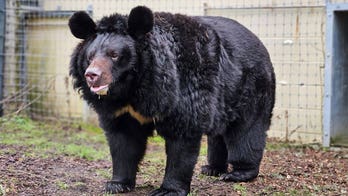
UKRAINE WAR Survivor: Rare Black Bear’s Heartbreaking Journey to Safety in Scotland
— A rare black bear, a survivor of the war in Ukraine, has found a new home in Scotland. The 12-year-old bear, named Yampil after the village where he was discovered among the ruins of a bombed-out private zoo, arrived on Friday.
Yampil was one of the few survivors found by Ukrainian troops who recaptured the city of Lyman during a counteroffensive in fall 2022. The bear had suffered a concussion from nearby shrapnel but miraculously survived.
The abandoned zoo where Yampil was discovered had seen most animals die from hunger, thirst or injuries from bullets and shrapnel. After his rescue, Yampil embarked on an odyssey that took him to Kyiv for veterinary care and rehab.
From Kyiv, Yampil journeyed to zoos in Poland and Belgium before finally finding sanctuary at his new home in Scotland.

UKRAINE WAR Survivor: Rare Black Bear’s Miraculous Journey to Safety in Scotland
— In a surprising twist, Yampil, a rare black bear who survived the war in Ukraine, has found a new home in Scotland. Ukrainian troops discovered Yampil amidst the wreckage of a private zoo in Donetsk. The 12-year-old bear was among the few survivors when the zoo was bombed and abandoned.
Yampil’s journey to safety is nothing short of an epic odyssey. Soldiers found him during the Kharkiv counteroffensive in 2022. He was then moved to Kyiv for veterinary care and rehabilitation. His journey continued through Poland and Belgium before he finally arrived at his new Scottish home.
Yampil’s survival is deemed miraculous as he suffered from concussion due to nearby shelling while most other animals at the zoo perished from hunger, thirst or were hit by bullets or shrapnel. Yegor Yakovlev from Save Wild said that their fighters initially didn’t know how to help him but started seeking rescue options.
Yakovlev also leads White Rock Bear Shelter where Yampil recuperated before embarking on his European trek. The refugee bear arrived on January 12th, marking an end to his dangerous journey and providing hope amidst ongoing conflict.

STOLTENBERG’S Pledge: NATO Commits a Whopping $25 Billion in Ammunition to UKraine Amid Russian Tensions
— NATO Secretary-General Jens Stoltenberg and Ukrainian President Volodymyr Zelenskyy convened on Thursday, amid rising tensions with Russia. Their meeting came on the heels of Russia’s allegations that Ukraine’s Western allies aided in a recent missile strike on the Black Sea Fleet’s base in Crimea.
Zelenskyy shared that Stoltenberg has committed to helping Ukraine secure more air defense systems. These are vital for safeguarding the nation’s power plants and energy infrastructure, which took a heavy hit during Russia’s aggressive attacks last winter.
Stoltenberg unveiled NATO contracts totaling 2.4 billion euros ($2.5 billion) for ammunition supplies destined for Ukraine, including Howitzer shells and anti-tank guided missiles. He stressed, “The stronger Ukraine becomes, the closer we get to halting Russia’s aggression.”
On Wednesday, Russian Foreign Ministry spokeswoman Maria Zakharova alleged that resources from the U.S., U.K., and NATO facilitated the attack on their Black Sea Fleet headquarters. Yet these claims remain unbacked by concrete evidence.
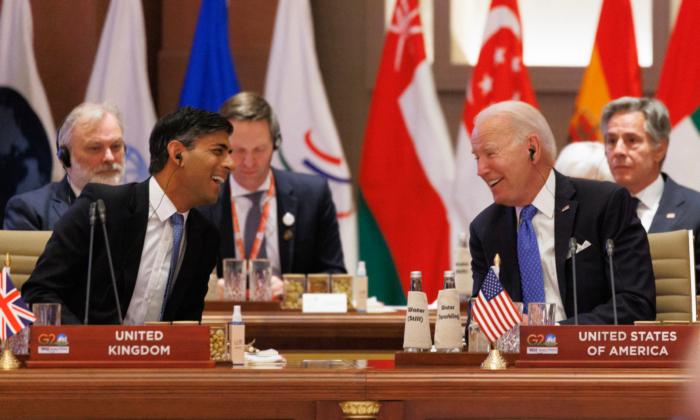
G20 SUMMIT SHOCKER: Global Leaders Slam Ukraine Invasion, Ignite NEW Biofuels Alliance
— The second day of the G20 Summit in New Delhi, India, ended with a powerful joint statement. World leaders united to condemn the invasion of Ukraine. Although Russia and China objected, the consensus was reached without explicitly naming Russia.
The declaration read, “We … welcome all relevant and constructive initiatives that support a comprehensive, just, and durable peace in Ukraine.” The statement underscored that no state should use force to breach another’s territorial integrity or political independence.
President Joe Biden renewed his push for the African Union’s permanent membership in the G20. Indian Prime Minister Narendra Modi warmly received Comoros President Azali Assoumani at the summit. In a landmark move, Biden teamed up with Modi and other world leaders to kickstart the Global Biofuels Alliance.
This alliance aims to secure biofuel supply while ensuring affordability and sustainable production. The White House announced this initiative as part of a shared commitment towards cleaner fuels and achieving global decarbonization goals.

Video
UKRAINE AID Boost: UK’S Bold £182 Billion Defense Commitment
— The United Kingdom and its allies have pledged £18.2 billion in military aid to Ukraine. This marks a big step up in support. The announcement came after a meeting of the Ukraine Defence Contact Group, highlighting Western nations’ key role in helping Ukraine defend against Russian aggression.
British Defence Secretary John Healey shared details of the package at NATO headquarters. It includes radar systems, anti-tank mines, and drones. The UK is working with Norway and other countries to strengthen Ukraine’s military strength and deter more Russian hostility.
Besides equipment, the UK and allies are focusing on training Ukrainian forces for battle readiness through 2025. Over 40 countries discussed immediate needs and long-term defense plans to keep Ukraine secure against ongoing threats.
This pledge highlights global stakes in defending democratic values amid conflict with Russia. The UK’s leadership shows its strong commitment as an ally of Ukraine during these tough times, sending a clear message against Russian advances.

Social Chatter
What the World is Saying